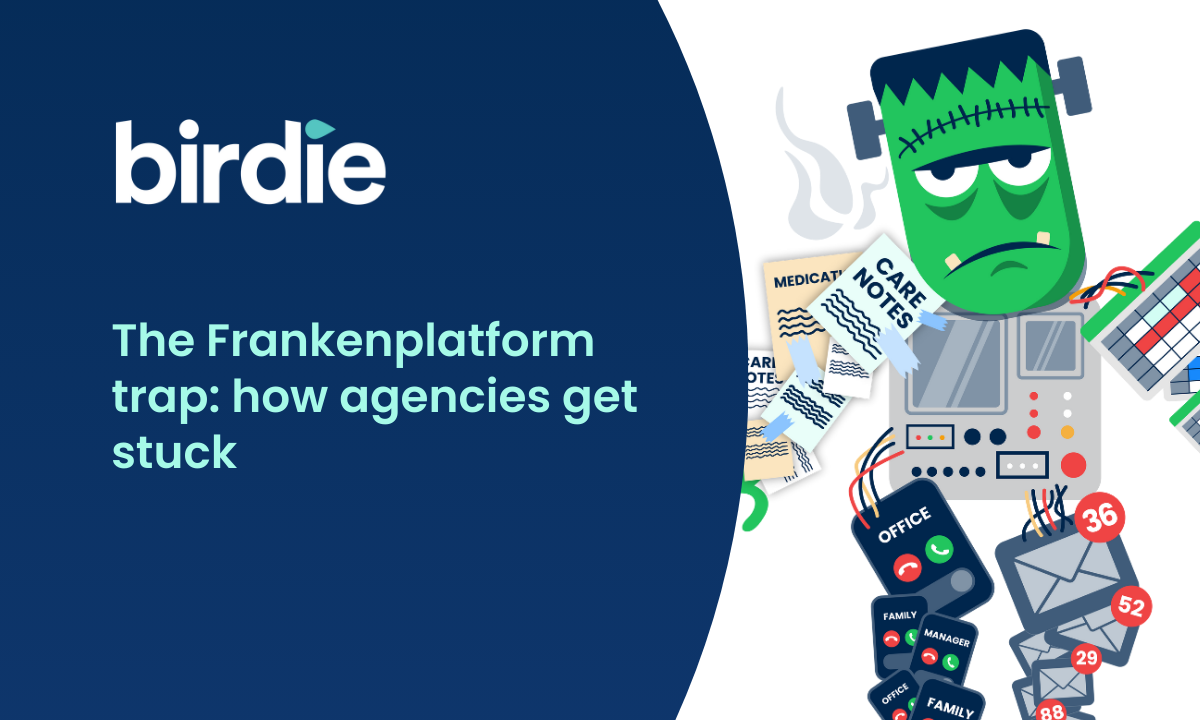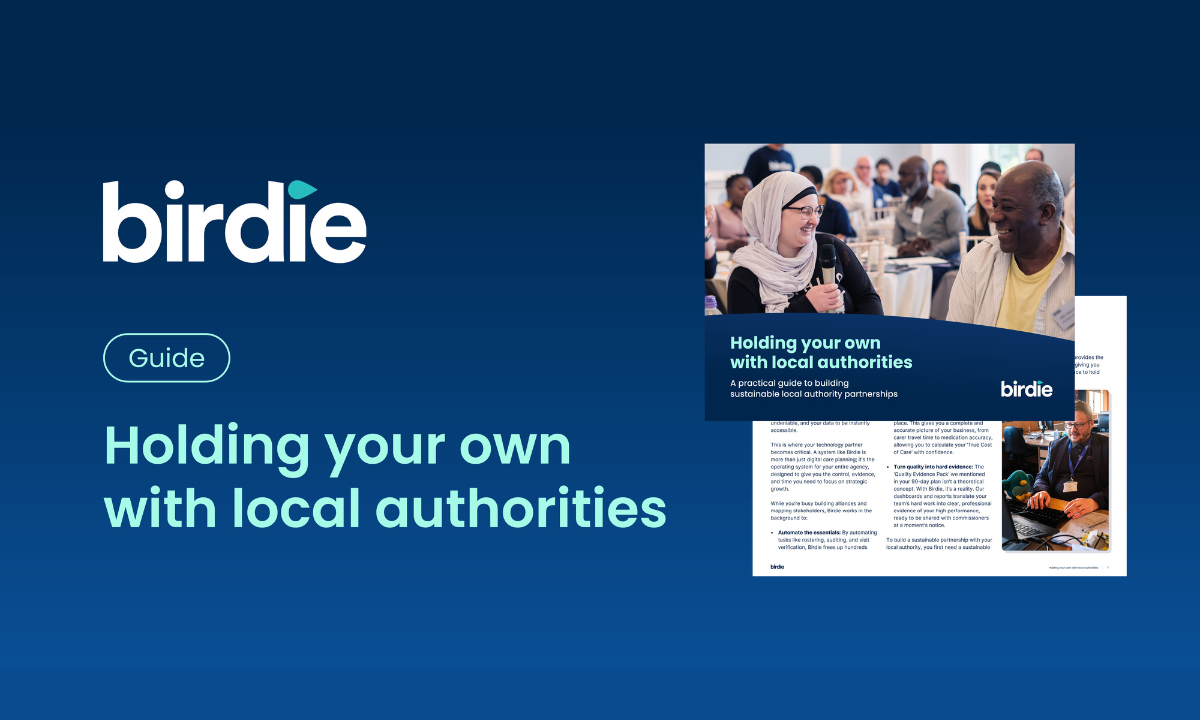
Whistleblowing is a vital mechanism for ensuring safety and quality within health and social care settings in the UK, including domiciliary care. When concerns about malpractice, neglect, or unsafe practices arise, whistleblowers can report these issues to the Care Quality Commission (CQC), the independent regulator of health and social care in England.
This article will explain what CQC whistleblowing is, who can report concerns, how to do so, and how the CQC handles these reports to improve care for clients.
What is whistleblowing in the context of CQC?
Whistleblowing refers to the act of reporting concerns about wrongdoing, unsafe practices, or mistreatment within an organisation. In the context of the CQC, whistleblowing plays a crucial role in identifying and addressing issues in health and social care settings, including domiciliary care.
Whistleblowing can cover a wide range of concerns, such as poor care standards, abusive behaviour, unsafe working conditions, neglect of vulnerable clients, and breaches of regulations. The CQC takes whistleblowing reports seriously, as they are often vital in uncovering situations that need urgent attention but might otherwise go unnoticed.
The CQC encourages individuals to report concerns if they believe there is a risk to clients’ safety, health, or well-being. Whether it’s related to substandard care or regulatory violations, whistleblowing is a key process for maintaining high standards across the care sector.
Read also - What is Whistleblowing in Health and Social Care?
Who can be a whistleblower under CQC guidelines?
CQC whistleblowing guidelines are broad, meaning a variety of individuals can act as whistleblowers if they witness or become aware of concerning practices in care settings. Whistleblowers may include:
1. Care workers
Care workers, including live-in carers and domiciliary care providers, are often best placed to witness firsthand any failures in the care system. Whether they see clients being treated with disrespect or experience unsafe working conditions themselves, they have the right to report concerns without fear of retaliation.
2. Healthcare professionals
Doctors, nurses, and other healthcare professionals who visit clients in their homes may observe neglect, medical malpractice, or poor hygiene standards. As professionals with a duty of care, they can raise these concerns to ensure that proper actions are taken.
3. Family members
Relatives or friends of clients receiving care can also be whistleblowers if they notice changes in behaviour or signs of neglect. This might include unexplained injuries, a decline in hygiene, or the client appearing distressed or withdrawn. Families play a crucial role in safeguarding their loved ones, and they are encouraged to raise concerns.
4. Volunteers and other staff
Even volunteers, cleaners, or administrative staff who observe malpractice or unsafe behaviour can report issues to the CQC. The guidelines are clear that anyone who notices something wrong has the right to speak up.
The CQC provides legal protection for whistleblowers under the Public Interest Disclosure Act 1998 (PIDA), meaning that individuals reporting concerns should not face any repercussions from their employers or colleagues.
Article continues below this video
Birdie caught up with the dream team at Walfinch Mansfield to find out how they’re able to operate at the very highest level of care delivery. Let's hear what they have to say...
How to report a concern to the CQC?
Reporting a concern to the CQC can be done through various methods, and the process is designed to be as straightforward and confidential as possible.
The CQC offers several ways to make a whistleblowing report:
Phone
Individuals can call the CQC’s National Customer Service Centre at 03000 616161. This is a direct and simple way to report any concerns, and the CQC staff will guide whistleblowers through the process.
Whistleblowers can also send an email to the CQC at enquiries@cqc.org.uk. It is advisable to provide as much detail as possible, including any evidence or documentation that supports the concern.
Online Form
The CQC website provides an online form that individuals can fill in to report their concerns anonymously. This method is useful for those who may prefer not to disclose their identity but still want to ensure the issue is addressed.
Writing
For those who prefer traditional mail, concerns can be sent in writing to the CQC’s National Customer Service Centre at Citygate, Gallowgate, Newcastle upon Tyne, NE1 4PA. As with other methods, whistleblowers should include details of the care provider, the nature of the concern, and any supporting information.
What steps should be taken before contacting the CQC?
Before contacting the CQC with a concern, there are a few steps whistleblowers should consider. While it is not mandatory to follow these steps, they can help ensure that the issue is addressed promptly and appropriately.
1. Raise concerns internally
In many cases, it may be appropriate to raise concerns directly with the care provider before contacting the CQC. This could involve speaking to a manager or supervisor within the organisation. Many care providers have internal whistleblowing or complaints procedures in place to address issues. Sometimes, raising the issue internally can lead to a quicker resolution.
2. Gather evidence
If possible, it is important to gather as much evidence as possible before making a report. This could include keeping notes on specific incidents, collecting any documentation that supports the concern (such as emails or care plans), and recording the dates and times of concerning events.
3. Consider confidentiality
Whistleblowers can choose to report concerns anonymously to the CQC, but it’s worth considering the pros and cons of this option. Anonymity can protect the whistleblower’s identity, but it may limit the CQC’s ability to follow up on the concern, especially if further details are needed. It’s important to weigh up these factors before deciding how to proceed.
4. Understand legal protection
Whistleblowers in the UK are legally protected under the Public Interest Disclosure Act 1998. This means that employees cannot be dismissed, demoted, or treated unfairly for raising concerns. Understanding these protections can help whistleblowers feel more confident about coming forward.
How does the CQC handle whistleblowing reports?
Once a whistleblowing report is made, the CQC follows a structured process to ensure that the concern is properly investigated and addressed.
Upon receiving the report, the CQC acknowledges its receipt, typically within a few working days, to reassure the whistleblower that their concern is being taken seriously.
Following this, an initial risk assessment is conducted, where the CQC evaluates the severity of the issue, its potential impact on clients, and any evidence provided. This step is crucial in determining the urgency of the matter and what further actions are required.
If the concern is considered serious, the CQC may initiate a formal investigation. This process could include unannounced inspections of the care provider, interviews with staff or clients, and a thorough review of relevant records.
In domiciliary care settings, the investigation may focus on whether clients are receiving appropriate care and if their needs are being adequately met. Depending on the findings of the investigation, the CQC may take various actions. These could range from requiring the care provider to make specific improvements to more severe measures, such as issuing warning notices, imposing fines, or even cancelling the care provider’s registration if they are found to be in serious breach of regulations.
Where possible, the CQC provides feedback to the whistleblower regarding the outcome of the report. While confidentiality rules may limit the details shared, whistleblowers are usually informed if action has been taken or if further investigation is necessary.
Even after the investigation concludes, the CQC continues to monitor the care provider to ensure compliance with any recommendations or actions taken. This ongoing oversight helps maintain high standards in care settings and ensures the protection of vulnerable clients.
Read also: Best care management solutions
Whistleblowing is an essential tool in safeguarding vulnerable individuals receiving domiciliary care in the UK. By reporting concerns to the CQC, whistleblowers help ensure that unsafe practices are identified and addressed, leading to better outcomes for clients and their families.
With legal protections in place and clear reporting processes, whistleblowers can confidently come forward, knowing that their concerns will be treated with respect and seriousness.
Birdie offers all-in-one homecare technology, supporting providers of all sizes with the entire care journey, from care management and quality auditing to rostering, finance, and analytics. Let's chat about how Birdie can help you and your business.

Related posts
Let us show you how birdie can help
You're the expert. You deserve home healthcare technology that motivates your team and helps you grow.







.jpg)
